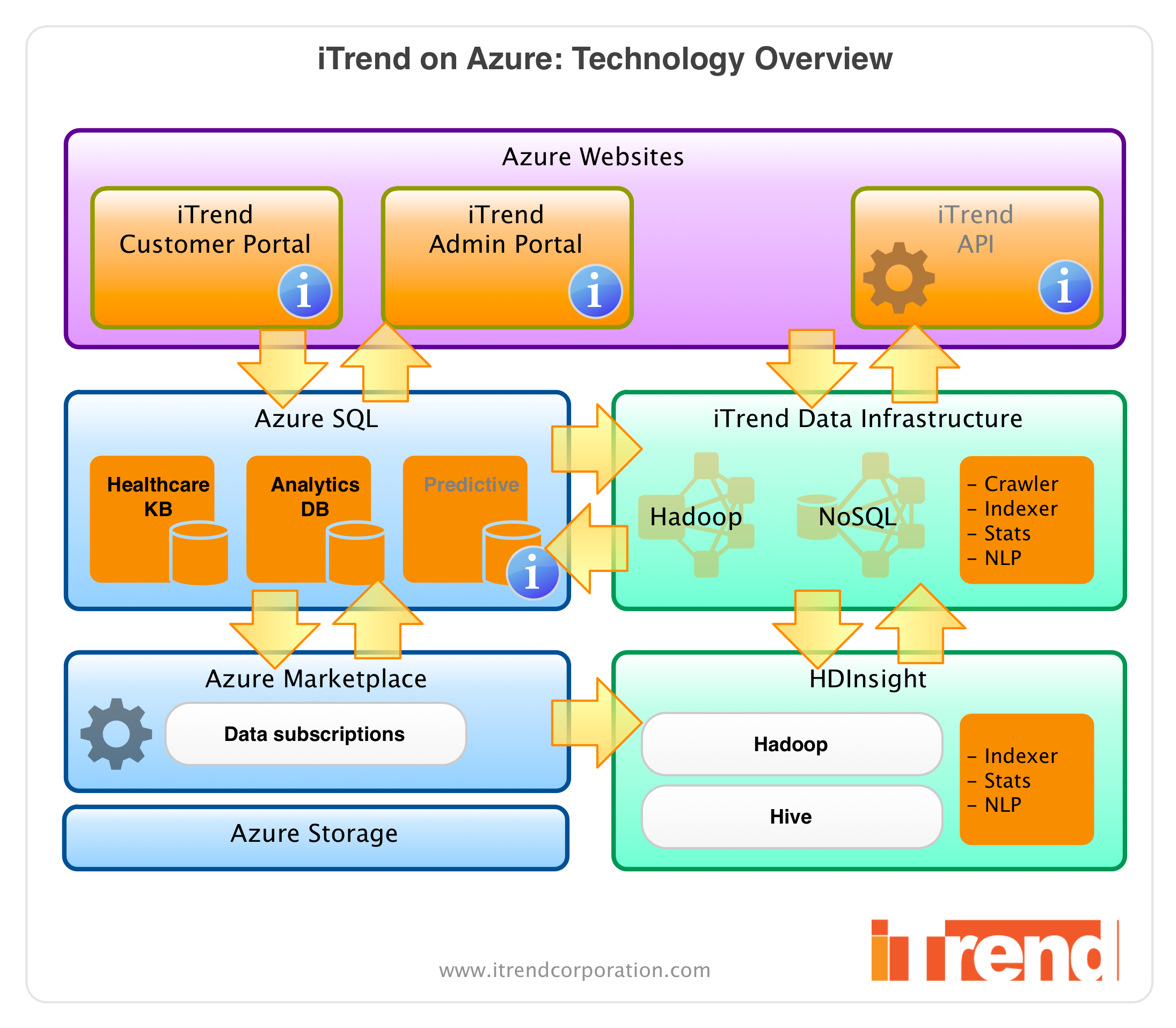Featured Startup on Azure - iTrend
Did you know that Stamford, Connecticut is a hot bed for new startups? It's true.
iTrend LLC is a data discovery and analytics startup located there. Their social media analytics platform, started by founder Michael Alatortsev lets you easily track any topic (campaign, product, event, brand), distill social media conversations, and identify key influencers, which a small or forming business might need to do to make conversation on the web part of its marketing activities.
But this interview is really not so much about what the company does, it's how Alatortsev sees entrepreneurship. According to him, founders need to be asking hard questions about the structure and scaling of their companies. Some of the questions you should be asking yourself:
-
- How should we handle intellectual property – should we file patents?
- How can we avoid taking VC money?
- How can we generate revenue quickly?
- How do we create an effective equity incentive plan for your team members, without triggering taxable events, or wasting time and money on formal valuation?
- Will our product promote itself (viral component)?
- How do we market it?
We dive deeper into this and other topics with Michael in our interview below. If you would like to be considered for an interview, sign up for Microsoft BizSpark and check out our new pitch page.
Michael Alatortsev, Founder and CEO
The company is using Azure SQL, Azure Websites, Marketplace (data subscriptions), Storage, VIrtual Machines, HDInsight. Additionally, we have our own cluster of servers running Hadoop and various custom data processing software.
Do you build for scale first, or for revenue? How are those things related in your mind?
Although building for scale and revenue are ultimately intimately related, we plan for scale from the outset, but build for revenue. Even before revenue, a web-based service needs to be able to handle sudden traffic spikes. It’s unfortunate when your site goes down after being featured on Reddit or Hacker News – you want to be able to capture all that traffic.
Do you make reasonable predictions about how you are going to achieve revenue and then test them out, or do you start with a business model and deploy it, to see if it brings in revenue?
We are aiming to solve a real problem (information overload), but we are still making certain assumptions about monetizing it. Once the minimum viable product is deployed, it becomes a never-ending feedback cycle – learn from customers, tweak the product, get more data, tweak again.
What questions do you think a startup non-technical founder needs to answer when considering a cloud architecture for his or her startup, and I am thinking specifically here during the business model generation period?
For the prototyping stage – is your cloud platform allowing you to build and deploy quickly? Is it easy to use with your favorite development tools? Once the service is operational - stability, performance, security, and operating costs become very important.
Where do you include technical members of your team during the building of your business plan?
Making a business plan can be a stimulating exercise, but unless you are in a proven and well established line of business – any data points you will come up with will have little to do with reality, and many assumptions will never materialize. Figuring out your business model though is very important.
How much of what you are building is based on leaving a legacy and how much of it is based on technical challenges, or the ability to make something just for fun? In other words, where do you fall on the seriousness scale? For fun, for profit, for life?
iTrend’s goal is to filter out the noise and allow people to more easily discover and understand data that they might not otherwise find, and use this data to help themselves and others. Now that our data platform is deployed and we see what it’s capable of – we can think of a number of fun projects that can be built on top of it.
When did you decide that you were “startup material”?
When I was a kid. I loved inventing and building things. The concept of doing a mind-numbing 9 to 5 terrified me. Now, I may be working more hours, but I enjoy it.
What are some of the challenges you face as a founder or developer at a startup, when it comes to dealing with family life, or socially? Does working on a startup change the way you associate and interact in these areas?
The biggest challenge is finding balance. It’s work in progress.
Obligatory questions that assist us in marketing
Can you describe the relationship that you have had with Microsoft in building your startup?
Been working with MS since 1990’s while at other companies – helped MS with promoting Windows Media. So, naturally – when I found out about Microsoft’s BizSpark program, I decided to register my newest startup – iTrend. MSDN subscription that it provides has been helpful. Other than that, we didn’t have much interaction with MS. I am looking for more ways to work together – especially since our data discovery and analytics platform can help you in marketing.
Why would an entrepreneur turn to Microsoft for help in building scale, a team, or using software?
People are currently cautious of Azure, and few are willing to use it for their production systems. Some reasons are technical (e.g. stability issues, the long awaited SSL support for Websites etc), others are perception. We would be happy to assist your team in overcoming these problems.
Tell us about your Azure-based solution.
Our social media analytics and data discovery platform lets you easily track any topic (campaign, product, event, brand), distill social media conversations, and identify key influencers. More information: https://signup.itrendcorporation.com
How is Azure implemented in your solution?
Our web application layer is hosted on Azure Websites. Data layer is Azure SQL. We are using Storage for internal data sharing. Some of the analytics data comes from our own infrastructure, which is then cleaned, summarized, and fed into SQL.
Additionally, we have built several predictive models on SQL Azure – for example, we are able to predict hospital readmissions based on prior history.
See below diagram:
How did you get excited about Azure?
Saw one of the early press releases, was intrigued, decided to try it.
What were the Azure features that prompted you to decide to build on Azure?
Ease of deployment, ability to scale up or down, and the familiar SQL interface with Azure SQL.
What advice do you have for companies that are thinking about building in the cloud?
Focus on what can get you started quickly.


